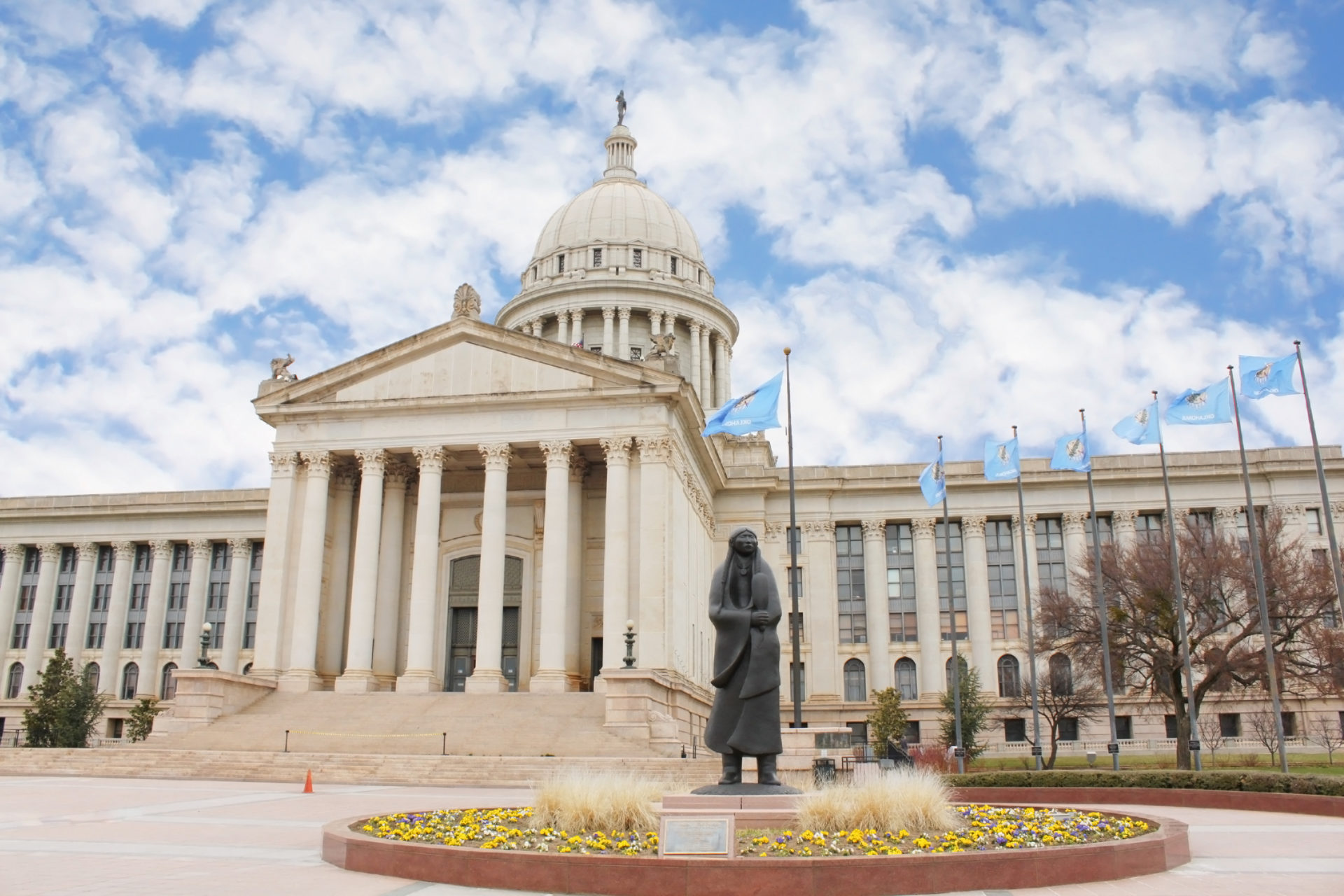As reported earlier by The City Sentinel, The American Civil Liberties Union of Oklahoma and the national ACLU have filed suit challenging the constitutionality of the Ten Commandments Monument located at the State Capitol.
“The monument’s placement at the Capitol has created a more divisive and hostile state for many Oklahomans,” said Ryan Kiesel, ACLU of Oklahoma’s Executive Director. “When the government literally puts one faith on a pedestal, it sends a strong message to Oklahomans of other faiths that they are less than equal.”
Plaintiffs in the case include Bruce Prescott of Norman, an ordained Baptist minister and theologian; Jim Huff, a former educator from Oklahoma City; retired businessman Donald Chabot, also of Oklahoma City; and former social studies teacher Cheryl Franklin, of Enid.
The lawsuit, filed in Oklahoma County District Court, seeks to have the monument removed, citing a constitutional interpretation against using state property to support particular religions or sects.
The family of Oklahoma State Representative Mike Ritze (R) paid $10,000 to privately fund the monument, located on the north side of the capitol complex last year. State Rep. Mike Reynolds, R-Oklahoma City, also helped finance the monument.
It created a media fanfare when the monument was installed with two spelling errors. “Sabbeth” instead of “Sabbath” and the word “maidservant” was incorrectly spelled as “maidseruant.” The errors have been corrected.
A Supreme Court ruling in 2005 said that Kentucky’s display of the Ten Commandments violated the Equal Protection clause and had to be removed. However, another Ten Commandments monument on the grounds of the Texas Capitol was determined to be a “legitimate tribute to the nation’s legal and religious history.”
Brady Henderson, ACLU of Oklahoma Legal Director said, “We must ensure that Oklahoma welcomes people of all faiths and those of no faith at all. Our suit asks the court to enforce a simple and fundamental rule that the government does not get to use its vast power and influence to tell you what you should believe.”
In a statement, the ACLU-OK says the lawsuit seeks to remedy the state monument’s impact on Jewish and Christian believers: “The government has taken a text that, in various forms, is deeply sacred in both of these faiths and have trivialized its religious meaning by placing it in a political and secular context, with its proponents arguing that the monument is a constitutionally permissible recitation of a purely nonreligious history of our legal system and government.”
Prescott said, “To argue that the monument merely commemorates something historical rather than religious is a slap in the face to the many Oklahomans, like myself, who incorporate the Ten Commandments into our religious practice.”
Daniel Mach, director of the national ACLU Program on Freedom of Religion and Belief said, “On fundamental matters of faith, the state has no business telling its citizens what to believe. No one should be made to feel unwelcome at their own state capitol.”
Kiesel added, “We aim to ensure the freedom of future generations of Oklahomans to make their own decisions about faith remains intact and free from political interference. Whether you choose to believe in a god, a creed, a code, or simply to believe in yourself, your choice should be your own, not coerced or influenced by what the government wants you to believe.”
Rep. Ritze’s office referred The City Sentinel to Hiram Sasser, Director of Litigation for the Liberty Institute in Dallas, TX. The Institute issued the following statement:
“We believe Attorney General Pruitt and his top notch legal team will do an outstanding job defending the State of Oklahoma and leading on this case and Liberty Institute looks forward to assisting them in this matter. “
Mr. Sasser felt the case was similar to Veterans of Foreign Wars in Salazar v. Buono in which Liberty Institute and co-counsel Ted Cruz (now U.S. Sen. Cruz) representing the VFW were successful in restoring a World War I cross memorial in the Mojave Desert.
The case is Prescott v. Okla. Capitol Preservation Commission, Oklahoma County CV-2013-1768, and has been assigned to District Judge Tom Prince.

